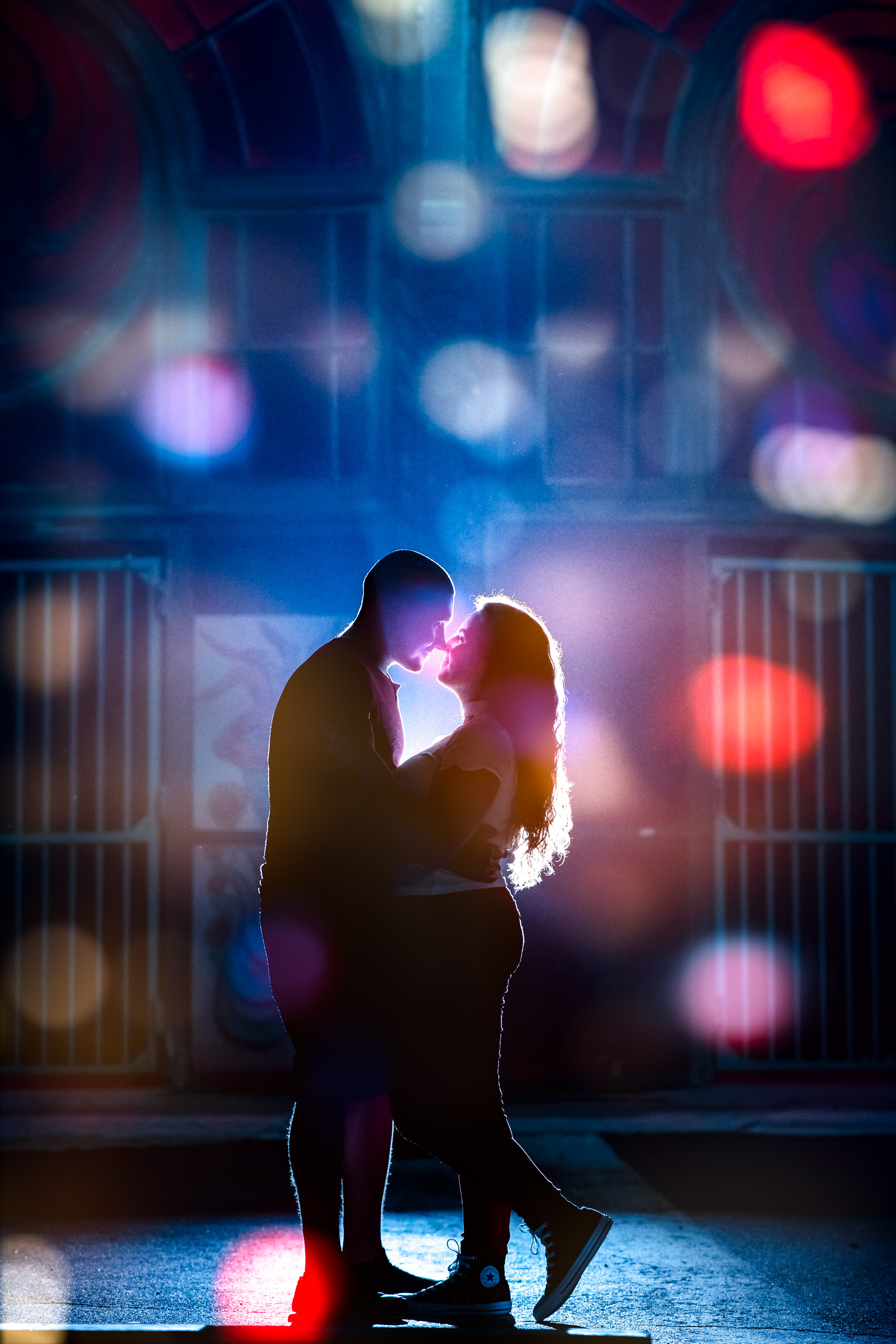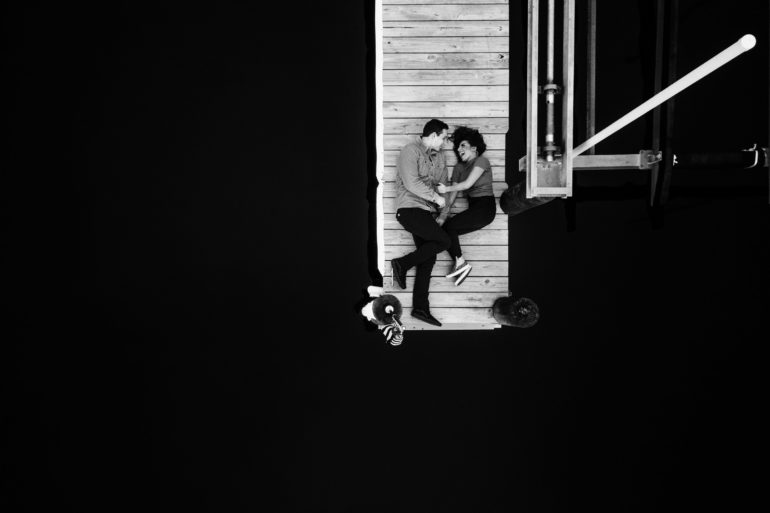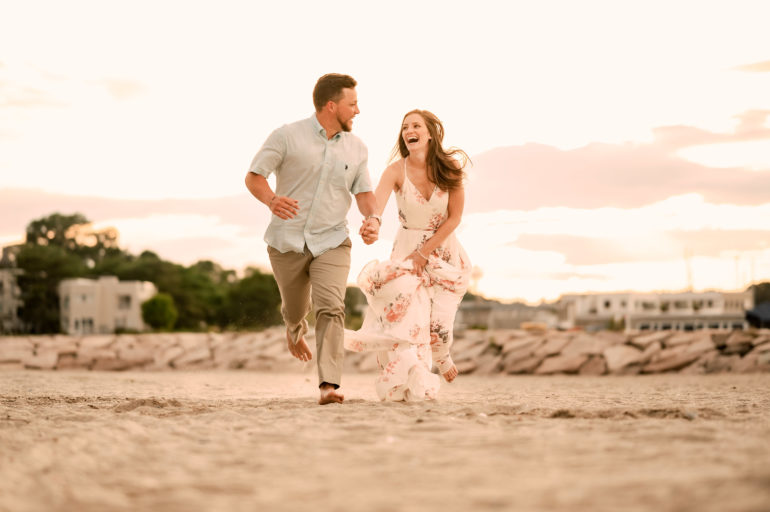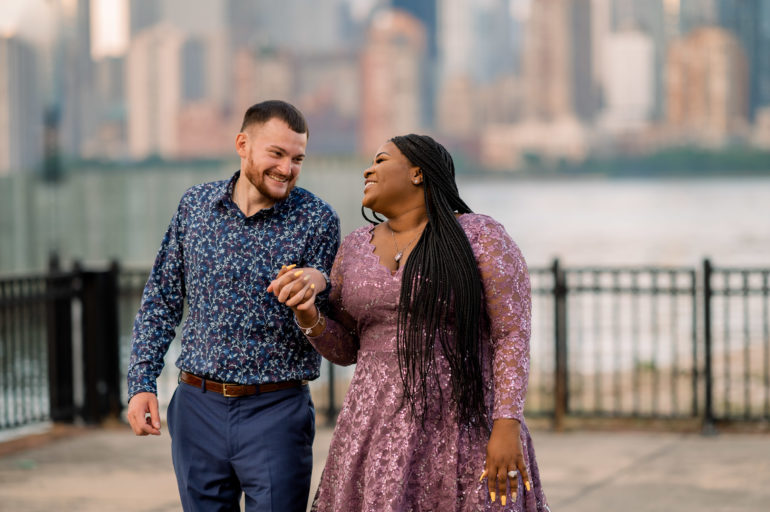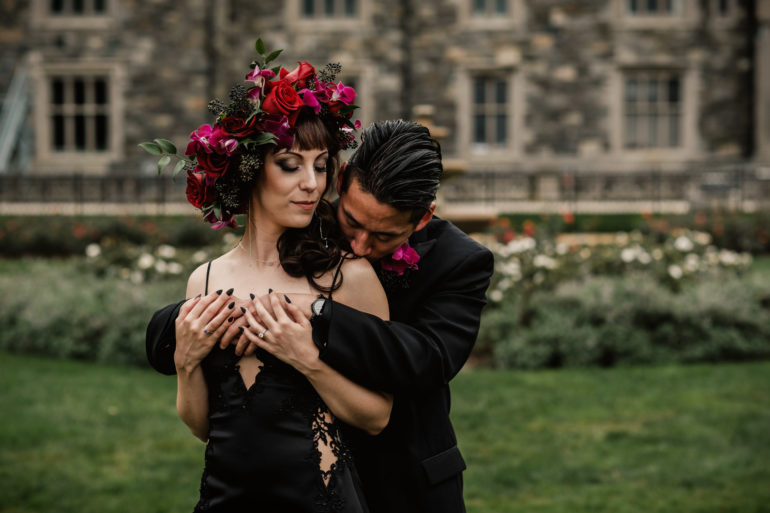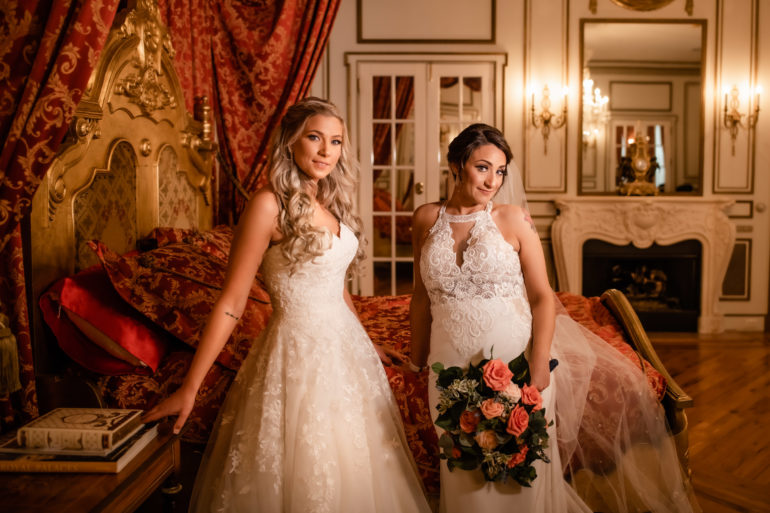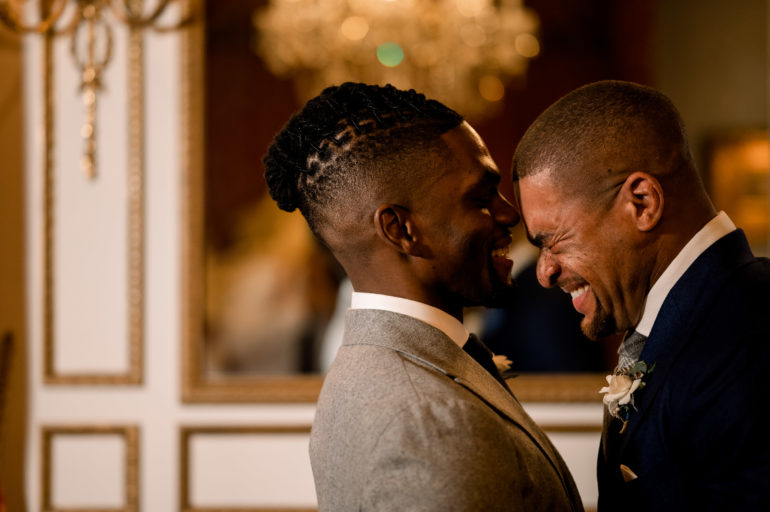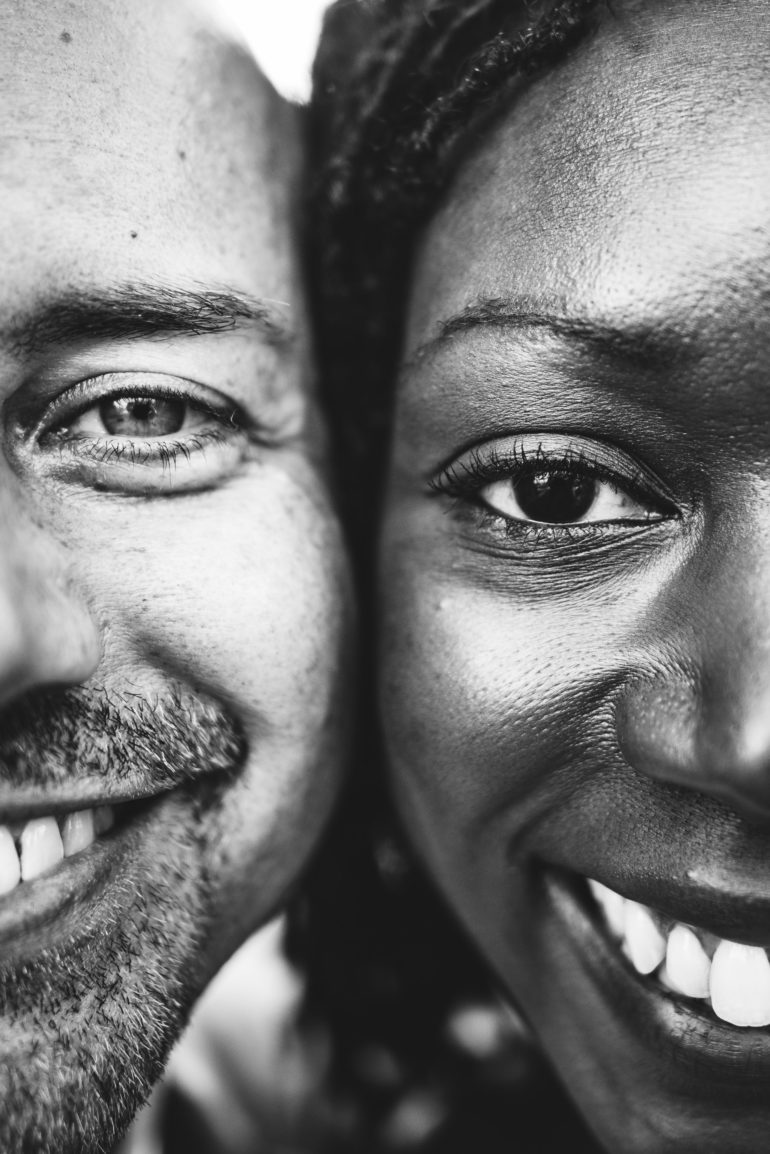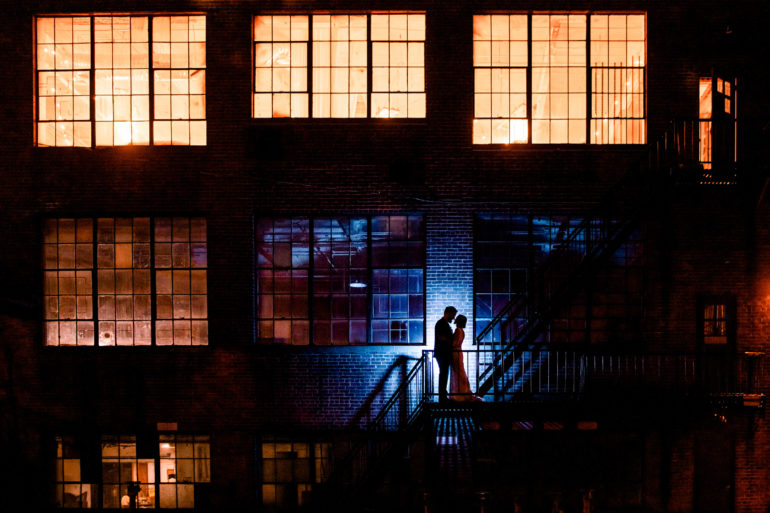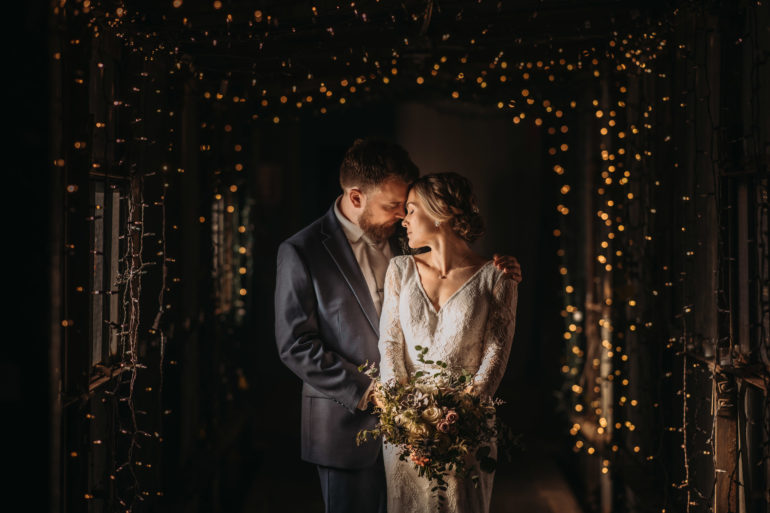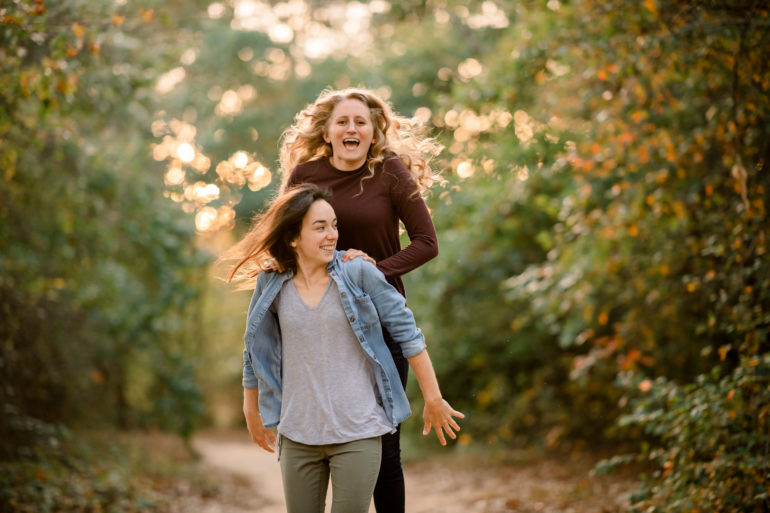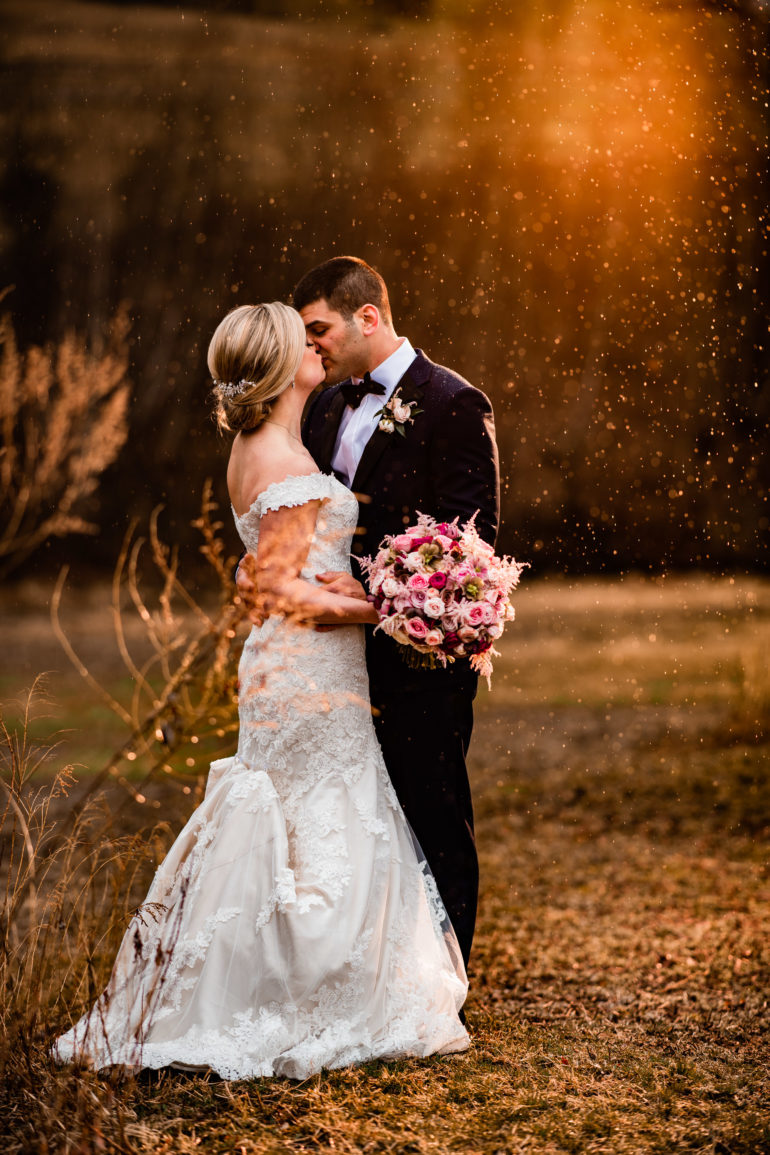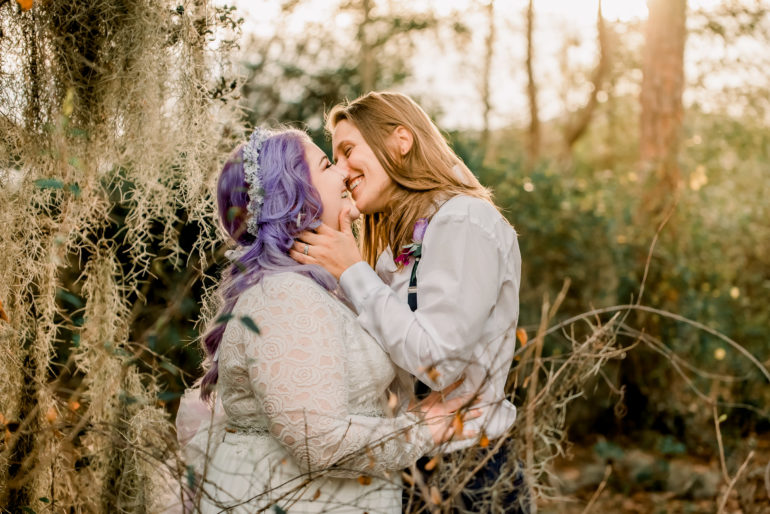All images by Mike Zawadzki. Used with permission. Please follow him on Instagram.
“Vulnerability comes into play big time with clients,” explains photographer Mike Zawadzki. “I mean who is used to being in front of the camera all of the time, unless you’re a TV/movie star?” A part of Mike’s secret is something that I think is inherently a part of growing up in the Northeast. He says that he strives to build strong relationships with his couples. Traditionally not something that you do, but it surely does work when you consider that we’re all human. Mike has a fascinating story and I’ve personally adored watching him change over the years. Mike is one of the many people who I saw quit alcohol in pursuit of improving their own life. I did it for a year and it really changed me. And to see Mike in a spot where he’s a shining star brings me joy. Most of all, I hope that this interview with Mike puts a smile on your face.
Mike Zawadzki’s Essential Gear
According to Mike:
If I had to strip down my entire kit to two lenses it would be the Sony GM 85 f1.4 and Sony/Zeiss 50 1.4 – I’ve done entire jobs with just those two lenses. In general I tend to lean towards telephoto lenses, so for subject separation, my Sony 135 1.8 GM does that better than almost any other lens I’ve used before. So it’s a toss up between the 85 and 135 GM lenses, to which is my “favorite” . The 135 also has a near macro focusing distance which was an unexpected surprise and can make for some pretty creative up close details during a wedding of both people (think eyelashes, jewelry on a bride, etc..) and smaller objects. The 50 also comes into play for me when I don’t want (or can’t have) a larger working distance, but still want dreamy bokeh and fall-off. As far as cameras I use the Sony A9ii bodies exclusively for all of my work. I recently switched to Sony after using a DSLR for nearly 13 years. The ability to track faces and have a viewfinder that doesn’t black out during bursts is just invaluable when it comes to capturing authentic and interactive moments that happen quickly, sometimes when you least expect them. I often find that these moments happen when a couple thinks a pose is “over” and they’ll break away and laugh, having a small moment together. I’ve tried to focus more on pure subject interaction and movement more than tech stuff over the past 5 years, so the A9ii (best AF in a camera I’ve ever owned) was a natural fit. Sometimes when tracking faces, it does such a good job (wide open too!) that it feels like I’m cheating.
I also like to use lights for creative night shots, and that’s done with simple Godox Ving 860II/AD200 flashes and MagMod accessories – or sometimes just a Youngnuo LED panel. Another big way I use OCF is for when things don’t go according to plan on a wedding day and it’s rainy or super dull/cloudy out. I will use my stronger AD200 lights with gels to create a fake “sun” or “sunset” to really impress my clients. While I can’t do this for all of their portraits, it does make people feel good when they have that special sunset shot they wanted, but thought was ruined by the weather. The longer I am in this, the less gear I tend to like to use, but I do find myself bringing more gear to jobs than most wedding photographers probably do – and usually have an assistant with me as well. Without the team I’ve surrounded myself with, I don’t think I would be able to always produce the same level of work in tight timelines and situations.
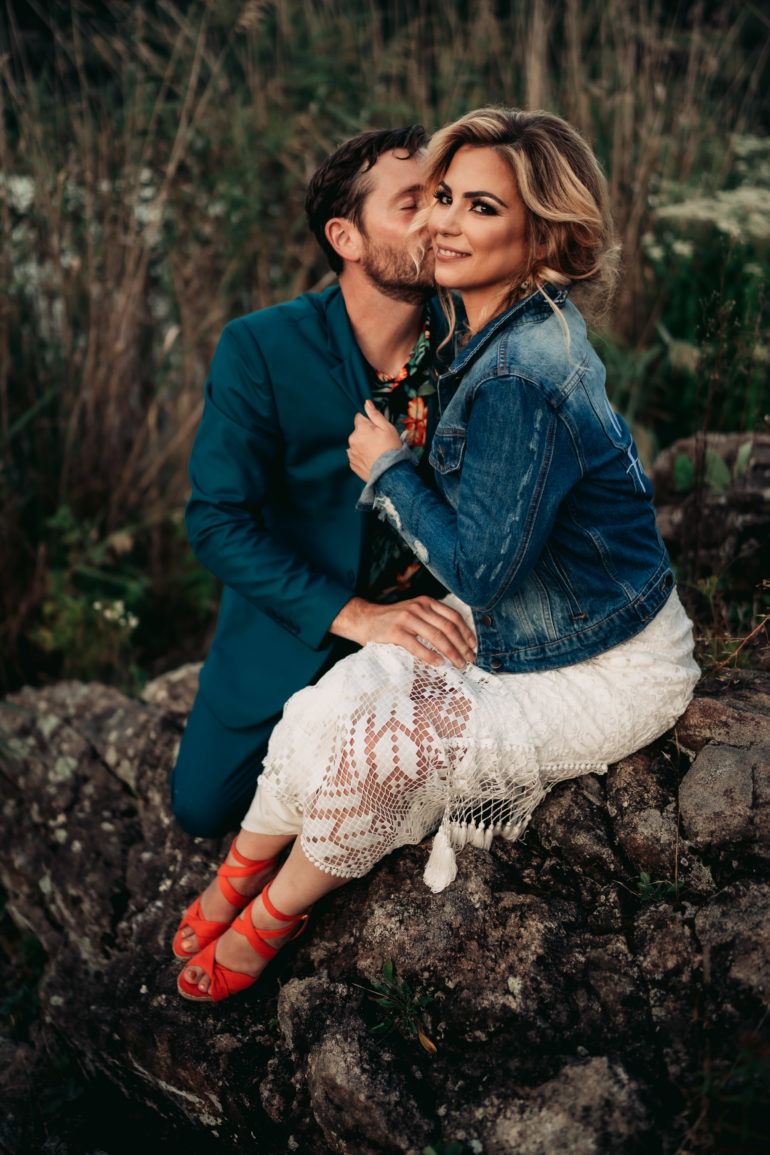
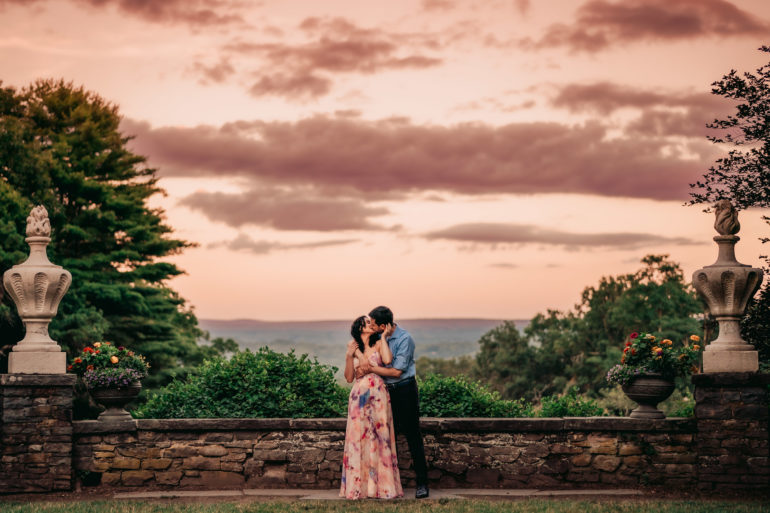
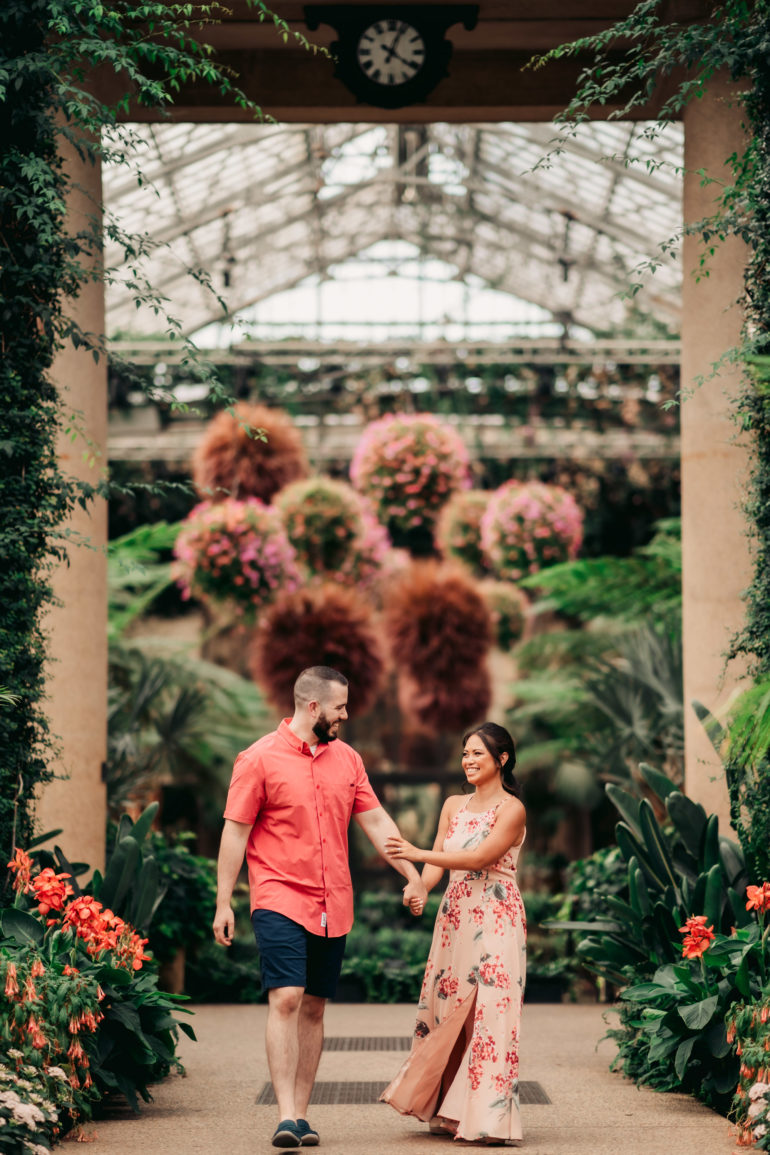
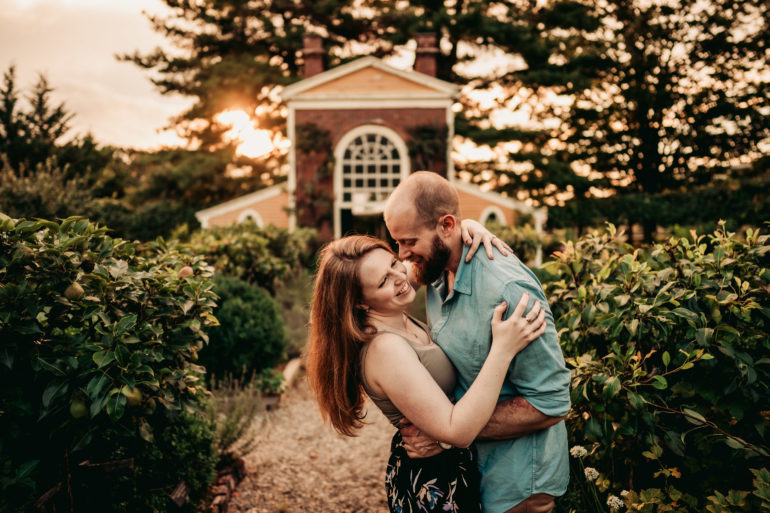
Phoblographer: Talk to us about how you got into photography.
Mike: I got into photography accidentally actually. I never had much of an interest in photography growing up, but I was big into Photoshop from about 9 or 10 years old. In college, I actually started out in journalism, with some interest in design and art history as well. My first course in photography was accidental. I admit I took it as an elective that I thought would be an easy course, with a small/pocket digital camera. It turned out to be a film photography course, which as you know is a totally different level of dedication. Serendipitously, I ended up having the same photography professor, Klaus Schnitzer, at Montclair State in New Jersey, that my father did in the late 1970s. I got hooked the first time I developed film and made a darkroom print, and it all really just snowballed from there. Originally I was certainly more interested in the gear/tech side of things, which was odd having an interest in art history I suppose, but eventually, I just fell in love with all of it, both technical and conceptual. It’s really become my life’s work and I couldn’t be happier doing it. To this day Klaus Schnitzer remains a close friend/mentor of mine, and am I still close with many of my classmates from then as well. While you certainly don’t need a degree to be a professional photographer, I really do cherish those days as the foundation for my career, and lifelong relationships I still maintain.
Phoblographer: What made you want to do wedding photography?
Mike: Originally? Honestly? It was just to pay off my student loans as quickly as possible. When in school back in the 2000’s I always swore “I’ll never do weddings, that’s for sellouts and is super lame – I want to do something more important and meaningful with my life” I guess I’m the world’s biggest sellout now! Ha. At some point around 2010-2012 I realized that I really enjoyed the energy from a wedding day, meeting new people, and even working in stressful situations. I worked my ass off for some of the bigger wedding studios in the area and have some mixed feelings about it now. I certainly appreciate being able to dive head first into the industry and learn some of the in’s and out’s of wedding days. I don’t think a lot of the bigger studios treat new photographers right, and some of their world views didn’t align with mine either. To me that sort of thing is important now, and I would probably give someone a little bit different advice now, instead of emulating what I did to get into weddings. I did enjoy working with some of the smaller companies run by 1 or 2 people though and they always treated me better. Now I try to treat my help (associates/leads, seconds, assistants) the way I wished I had been treated back then. Now though, I love my job so much – I don’t do it “just to pay the bills” at all. It’s something I really just love doing. I realized eventually that what I do is important, and that meeting new people is just so cool. Especially with branding, copywriting, and outreach, I end up attracting a lot of like-minded folks who are really my speed, and when I work with them, it really does just feel like we are hanging out at times. Often too these kinds of clients will respect what I’m doing more, and everything just operates really smoothly, even on a day when something might not go as expected, like having rain during a wedding that was supposed to be at a beautiful outdoor venue.
Phoblographer: You used to work at Unique Photo and then you went full time into doing weddings. What was the transition and planning like for you to finally escape corporate work? I did something similar when I left B&H Photo nearly a decade ago and I haven’t looked back at all.
Mike: I worked at Unique Photo as an employee for about 9 years so I certainly took my time making the transition. Again I wouldn’t tell someone to follow my path with how I left. I did it pretty impulsively. I quit and moved to Florida a couple months later without planning ahead too much. It ended up working out, but there were some hard lessons and growing pains going from being employed to self-employed. As far as Unique Photo? Lots of good memories there especially with the people I worked with, and even some customers I met too who I remain friendly with on social media. Though, I don’t think I could ever go back into retail work now after running my own business, and getting to actually DO photography, instead of talk to people constantly about cameras, often repeating the same info over and over. I still maintain a good relationship with the company and they have some really smart and ambitious people leading there now. In the future I might do some classes with Unique Photo, and I still use them for all of my purchases, but no I don’t ever look back and wish I was in retail, or even something like an office job in this industry. I like being out, on the go, and using my cameras too much. Also the freedom of working for yourself is nice, though it does present itself with new challenges as well.
“It was just to pay off my student loans as quickly as possible. When in school back in the 2000’s I always swore “I’ll never do weddings, that’s for sellouts and is super lame – I want to do something more important and meaningful with my life” I guess I’m the world’s biggest sellout now! Ha.”
Mike Zawadzki
Phoblographer: You’ve shot for many years in both the northern market and the southern market. How do you feel they differ?
Mike: In the south, it seems like planners really do have a lot more influence in the mid (and even lower) tier markets vs. in the north. Right now I make a good living, but don’t consider my style or brand to be in the “luxury” market when it comes to weddings up here in NJ/NY. Only a handful of my 45-50 weddings per year have planners vs. almost all of them in Florida when I worked with my friend Tara Tomlinson. She really does well down there and a big part of it is being friendly with planners. Some people don’t like working with wedding planners, and that was always the impression I was under when I first moved down there. I learned to really end up loving it though, and I do think a good planner can make my job as a photographer much easier. Up here in the north, venues have a lot more pull, and a few of them recommend me, but I am not on any of the “pay to play” lists which I think are questionable at best, and pretty misleading at worst, to couples. Not a fan of that at all. It’s a shame really, but I do well. A lot of my couples end up telling me they didn’t like the list that the venue gave them, and fell in love with my work on Instagram, or a blog post of mine that they found online. It hasn’t been an obstacle for me so far. In general I do find more couples up here that align with my world views, being pro-LGBT, caring about black/brown lives, and although the old school business mentality says to not mix those things with business, I don’t buy into that – and I find it goes a long way when you are working with someone who you know believes in basic human rights. I found that harder to come by in Florida and saw some pretty bizarre things down there, but also had a lot of couples who were absolute gems in Florida too. It’s who you attract, all comes down to how you present yourself. Also for the mid-to-upper range market, the budgets here in the north are just flat out better, but of course the cost of living is a bit higher too. There are a lot of great photographers in Florida, but the population density isn’t quite the same either, so even though it’s a big state – there isn’t quite as much work in some areas. You know it’s pretty far to drive from like Miami to Tampa or Tampa to Tallahassee as opposed to living in NJ here and being only a couple hours away from so many big markets.
Phoblographer: Rank these in terms of what you think are most important to your creative vision: empathy, vulnerability, humanity. How do you think this makes you and your work so different?
Mike:
1) Humanity
2) Vulnerability
3) Empathy
“In general I do find more couples up here that align with my world views, being pro-LGBT, caring about black/brown lives, and although the old school business mentality says to not mix those things with business, I don’t buy into that – and I find it goes a long way when you are working with someone who you know believes in basic human rights. I found that harder to come by in Florida and saw some pretty bizarre things down there, but also had a lot of couples who were absolute gems in Florida too.”
Mike Zawadzki
Gee that was pretty tough, never really thought of those exact words when talking about my work, but all of them are important. I’m not sure if it makes my work different, but considering those kinds of things does make me approach work differently. Again going back to values and worldviews, humanity is number one. Especially with the people who I bring on jobs to work with me. They need to have the same values as I do because I never want to put one of my clients in a spot where they are working with a photographer or even an assistant who is close-minded, or frankly racist/sexist/homophobic. All of my photographers adhere to the same principles that I do, and again that goes against the old school way of thinking a bit. I talk about those things with my team to make sure we’re all on the same page, and I’m not shy about putting it out there on my website either. It’s the right thing to do. Vulnerability comes into play big time with clients. I mean who is used to being in front of the camera all of the time, unless you’re a TV/movie star? I really strive to build strong relationships with all of my couples. Maybe we won’t be best friends, but I do end up being friends with a lot of them. Yet again breaking some old traditional norms there, but this does help them open up in front of me, and we always have a good time on jobs. In terms of empathy, I have reworded all of my forms and communications to be gender neutral (Partner A/Partner B), even going as far to remove words like “mother and father” from my worksheets, and just use “parents” instead. In this day and age there are a ton of different family dynamics, things that I might not understand, etc… so I try to stay on top of that, always trying to learn – and always open to critique as well. Really not sure if it makes my work different technically, but I’d like to think people who work with me know that I am an open-book and always there for them, and that I really do care for all people, no matter what. I would say this does really help people be at ease during the booking process and of course in front of the camera as well.
Phoblographer: You’re all about those warm color palettes in your images, aren’t you?
Mike: Yeah buddy! I’m always looking for sun position and it’s funny. I used to really be all about flash/technical stuff, dramatic shots, or as some call them… hero shots? But now I really do seek out more natural light. If I do use flash outdoors at all, it’s to emulate sunset on a cloudy day as a backlight, or occasionally do a creative portrait at night using things like multiple exposures and gels as well. My main focus is authentic moments, flowing movement, and connection, but it’s ok to indulge a little bit. As far as the warmth, I guess I am a little old school on that. I think cool/gray/dull images are boring and don’t convey love well. I mean hey if that’s your thing, I’m sorry and I don’t swear to be the ultimate authority on everything that looks good, but for me it’s always been about warmth and contrast when it comes to editing. People really seem to like this. When I talk to couples in consultation they often bring this up, that they saw a lot of photographers who use overly filtered type edits, and/or the super bright/pastel look. Again not to knock it, but that’s never something I’ve been into too much. I think in one of the older posts I was featured on here, I was doing some pretty heavy-handed editing, but it was still in the same spirit. Following that pattern and developing my style, instead of chasing the latest trendy look has really paid off big time for me. I do have a base look that I usually start with, but I do also try to consider the environments, light, and mood of the moment when editing. Unlike a lot of photographers too, I do consider what couples like as well. I’m not willing to reinvent or change my whole style, but if I know a couple is really into those warm tones I’ll probably exaggerate it a bit with how I photograph how I edit their sessions/wedding.
Phoblographer: Instagram, your website, and your blog: what ends up getting you the most gigs? Do you think you could function without your website and blog?
“I used to really be all about flash/technical stuff, dramatic shots, or as some call them… hero shots? But now I really do seek out more natural light. If I do use flash outdoors at all, it’s to emulate sunset on a cloudy day as a backlight, or occasionally do a creative portrait at night using things like multiple exposures and gels as well.”
Mike Zawadzki
Mike: It’s all important. I get some leads from Instagram, a lot aren’t that serious though too. My website is key. You know social platforms come and grow, and although I don’t think Instagram is going anywhere, they could start to severely limit post visibility like Facebook did with business pages. If Instagram turns into that, a lot of people are going to be in for a rude awakening. I don’t know if I would bother paying to be visible on Instagram. It’s always been more of a place where my clients, or prospective clients can see what I’ve been up to lately. My website is the core. Right now I’m on a SEO crunch and redoing a lot of things and getting great results. People are finding me at venues and locations I really like working at. In fact before I saw these email questions I was going to get to another blog post. I put a lot of work into the blog posts too, to make sure they show up for the right keywords. It’s a lot more than just throwing some pretty pictures up and telling a gushy love story. I’m all about community over competition in some aspects of this business, but when it comes to SEO I’m all for competition and it’s become something I like to challenge myself with week by week. It is one thing I can have full control over and not be reliant on platforms or investing $1000’s (which I still do sadly at the moment) into some of the bigger wedding portal/planning sites. I’m very transparent and spend around $15-20,000 a year on advertising right now. In two years I hope to be weaned off that a bit, and only relying on my SEO. We’ll see. Maybe I’ll update you if you care to interview me again in the future!
Phoblographer: Your work feels like a nice blend between documentary style and carefully crafted creative planning and orchestration. Which do you feel you’re more of?
Mike: I think you put it best right there. I see myself as a mix of both, and I try to mirror my couples. If they like one thing more than the other, I will lean into it, while keeping some of the other parts in mind too. Not every couple is super playful so interactive and natural photos seem harder, but I have some fun prompts and jokes I use to get people loosened up. Also not everyone is really into the dramatic/hero images, but I do think most people appreciate a little bit of great light. So yeah, really a mix. You have to be flexible on that too. Sometimes during a job I will realize that a couple isn’t as comfortable being photographed one way, or they will even ask for something – so I have to be able to change direction at any time. There are some people who do know exactly what they want, but don’t always know how to express it. The best is when they trust me on locations, timing, etc… because I can usually execute what they express as being important to them.
Phoblographer: How has COVID 19 affected your business and how have you been adapting?
Mike: Damn I feel like we really could do a whole article on this Chris! Sheesh. I’ve postponed and canceled 45+ 2020 weddings at this point. It’s been tough, but instead of letting it keep me down, I have kept pushing. A lot of photographers talk about “pivoting” away from weddings, but that’s not me. I’m leaning into them more. My bookings for 2021 are really strong, and 2022 is even starting to fill in nicely now. There have been some challenges, like having to let a couple know that I am unavailable for their “new” 2021 date, but thankfully I am backed up by an amazing team of associates and seconds who have been able to take on all of those jobs. Overall though I’ve just tried to treat couples like I would want to be treated in their situations. This means taking it on the chin a lot more than some other photographers or companies in general have, but ultimately I know treating people the right way will prevail for my business and again it just feels like the right thing to do. I admit for about 2 months I was entirely useless. Didn’t sleep much, and when I did it was during the day. I played a fuck-ton (can I say that?) of Animal Crossing, Fortnite, and Stardew Valley. But eventually I snapped out of my misery. I think that period of processing was important though, and no one should be too hard on themselves for it either. I needed the mental break, but since then I’ve slammed my foot down on the business pedal since then when it comes to things like SEO, advertising, blogging, and staying consistent on social media. A couple personal life factors have come into play as well. As you know I’ve been sober for about 2.5 years now and maintaining that sobriety for my physical and mental health is really helping me get through this with strength. I also just started a new nutrition and fitness plan to get my body back in shape for what will be a very demanding year in 2021. Some of those personal things really have helped give me the correct mental headspace to operate a business in during a pandemic.
“My website is key. You know social platforms come and grow, and although I don’t think Instagram is going anywhere, they could start to severely limit post visibility like Facebook did with business pages. If Instagram turns into that, a lot of people are going to be in for a rude awakening.”
Mike Zawadzki
Phoblographer: What’s the part of the industry that you feel really needs to change? Or are there many of them?
Mike: Oh gosh I think I touched on that already with some of my ramblings here, but… Yeah. There needs to be a reckoning in this industry when it comes to selfishness, from all sides. Businesses, a lot of the bigger ones like venues should be put in their place a bit and learn to treat people better. Photographers and creatives need to be less obsessed with being popular with other people in their same field, and be more focused on their clients – ya know the people that pay us? On the other hand, a lot of clients need to realize that things might not be the same for a bit, and they might not get to have the exact wedding that they hoped for, especially if they are doing it in the near future. I know certain dates or days of the week have importance in this industry, but if losing only one of those things is the worst thing that’s happened to you during all of this? Not so horrible in my opinion. I would be more happy to be able to keep all of my wedding vendors if I were a couple getting married, and not a specific date or day of the week. In general I think a lot of the bigger factory type photography studios are starting to lose traction. I check their social feeds all the time, at least the ones in New Jersey. They seem to only post straight white couples and in general there’s just an emotional disconnect with their work. It looks like work, not art to me. I mean when you hire a place like that, you often don’t know who your photographer will be, and what their loyalties even are to the company they are working for. And the second photographer? They’re probably finding them on Facebook or something. I know some people who work for companies like this and I see my old self in them. I just want to shake them and tell them that they’re good enough to be on their own and that they don’t have to be shooting as a lead (and even editing sometimes – WTF) for $400 for 12 hours. I really could go off about this more, but my couples seem to not even mention competition like that when they book me, so it isn’t a concern to my business, but I do want people to be treated the right way. I don’t want to see anyone lose their business, but having a little bit more personal touch – and being more openly accepting of people of all backgrounds, beliefs, etc… would go a long way in improving the industry.
“In general I think a lot of the bigger factory type photography studios are starting to lose traction. I check their social feeds all the time, at least the ones in New Jersey. They seem to only post straight white couples and in general there’s just an emotional disconnect with their work. It looks like work, not art to me. I mean when you hire a place like that, you often don’t know who your photographer will be, and what their loyalties even are to the company they are working for. And the second photographer? They’re probably finding them on Facebook or something.”
Mike Zawadzki
Phoblographer: You’re one of the photographers that celebrate same-sex marriages. Mentally speaking, is there a different style of approach to these vs the traditional man and woman? I’m sure that it starts with the wardrobe and goes on from there, right?
Mike: As you can tell from my answers already, supporting LGBTQ+ coupe is something that’s really important to me, but I don’t really have a different style for those couples? I don’t think? I don’t tell people what to wear, I only make suggestions. One of my biggest strengths with any couple is connecting/mirroring/reading couples right away when I meet them for sessions. I break the ice and kind of learn how they interact and play off one another regardless of gender or sexual orientation. I can tell when someone feels uncomfortable during a pose, and freeze my photography right away and say something like “hey you look a little uncomfortable let’s change this up” generally we all laugh about it and try something new, maybe with movement/walking to get everyone feeling happy and playful.
Phoblographer: To you, what’s the best part of the whole process? Editing? Shooting?
Mike: I get energy from all of it. From the first call to delivering the final images. There are times when I just nail the one shot I’ve envisioned and I can’t wait to get on my computer to play with it. Sometimes I cheat and use the wifi on my phone/camera to transfer the images and edit them in the car right after the session because I am so excited.
Phoblographer: If you had to divide your time up, what do you spend the most time doing? Marketing and admin work I assume? Talk percentages with us if you can.
Mike: Hard to say percentages, but the most time is spent on admin/marketing/emails. Probably about at least 70% of my time, maybe more. A lot of photographers probably don’t realize this, but it isn’t just taking pretty photos and editing them. A lot of work and dedication goes on. There are days when I don’t feel good, or feel like getting into my email, but I always stay on top of it. Being responsive and fast at communicating is one of my brand’s strengths. I don’t like waiting for things, so I know it helps people feel like they are being taken care of. I probably spend 20% editing and the last 10% would be the actual photography itself.
Phoblographer: What precautions have you been taking in the age of COVID 19?
Mike: I’ve been wearing masks on all of my smaller jobs, sanitizing my hands regularly and maintaining a proper distance from guests and couples. Of course all of the consults I do have been on Zoom, which is actually pretty nice. I take COVID19 very seriously and have actually turned down some work that I felt would include unsafe travel, locations, or situations. It’s tough, but I’m not putting myself, my team, or future clients at risk just to get a paycheck. Sadly I see some folks not taking it as seriously. I hope we do get a vaccine as soon as possible. Everyone who works for me will be vaccinated too. Sadly that seems controversial in some circles now, but I believe in science and public health. Americans in general could really do a lot better about caring about the well being of people besides themselves. Viruses don’t care what your political beliefs are, and “I’m not scared so let me do what I want” doesn’t work when it comes to how they spread either. It’s really a shame. I feel like this could all be under such better control here if people were less selfish.
“A lot of photographers probably don’t realize this, but it isn’t just taking pretty photos and editing them. A lot of work and dedication goes on.”
Mike Zawadzki
Phoblographer: How do you see the wedding industry adapting to social distancing and such over the next year or so?
Mike: I don’t think it will. A lot of venues are already going rogue and breaking regulations. I think some of them will end up being fined, and a lot of people could end up getting sick. But overall? No, I don’t think it will change much in the long term. Short term? I think people will lean towards more outdoor settings and perhaps only inviting 50-75 guests instead of 200.


